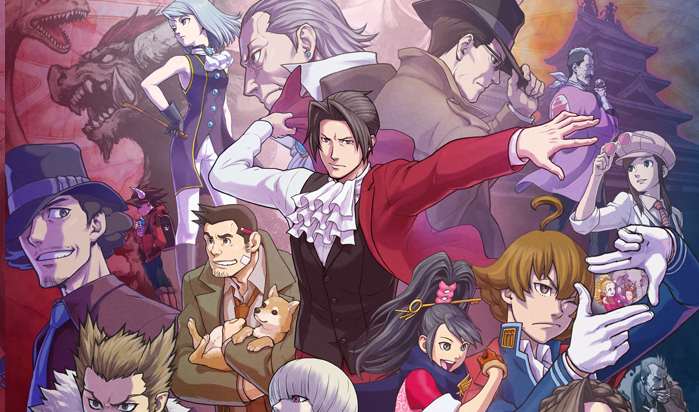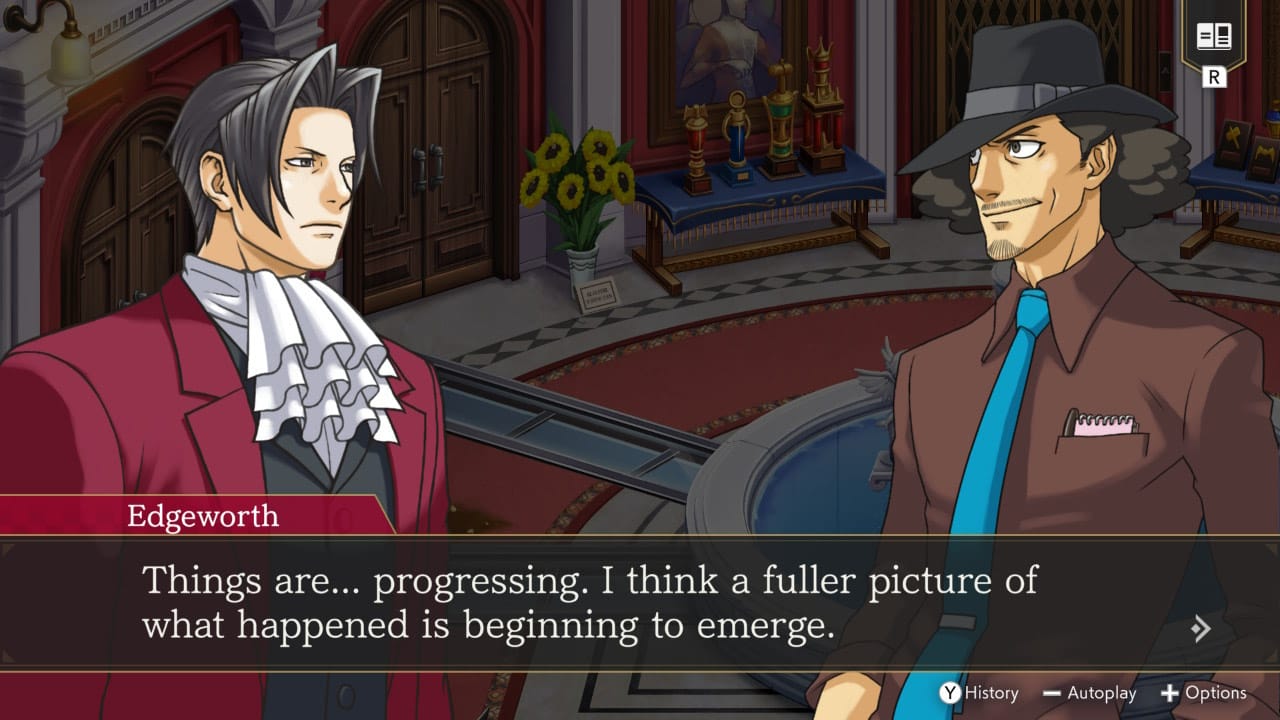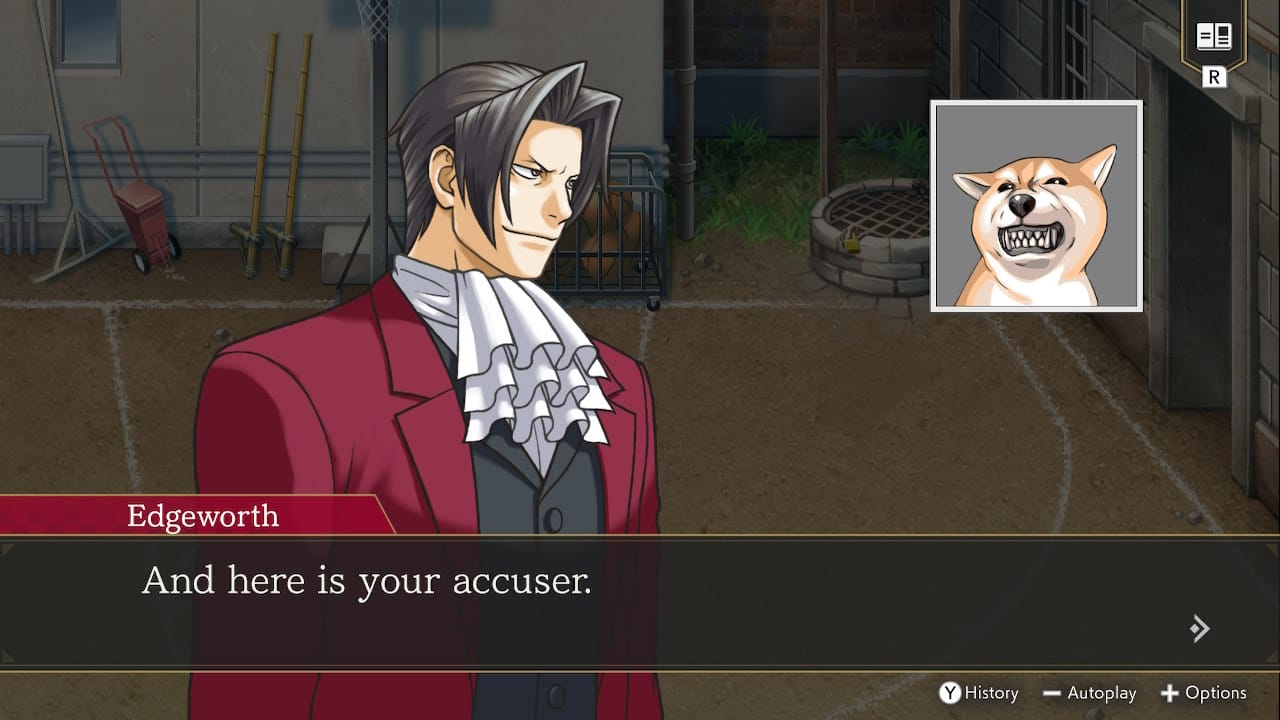Ace Attorney Investigations 2: The Waiting Game
Catching up with an icon 13 years later

Earlier this year, I watched the movie Millenium Actress. Satoshi Kon's second anime feature released in the early 2000s - it's hard to pinpoint exactly when it became available here in Australia, but I believe there was a DVD release around 2003. I remember reading a review in gaming magazine Hyper, seeing the disc on sale at shops and available for rent at Blockbuster. I definitely fully intended to check it out.
21 years passed between that initial spark of interest and the day I finally sat down to watch Millennium Actress. A child born on the day I first realized I wanted to see the movie would be an adult by the time I finally watched it; indeed, as I put the disc I'd borrowed from my local library into my PS5, I thought about how odd it was to be at an age now where there can be pieces of media and entertainment that I have been "meaning to get to" for over 20 years.
If you've seen Millennium Actress, you'll know that this is just about the most symbolically potent film you could possibly put off watching for 20 years. It's about an actor, Chiyoko Fujiwara, who spends her entire life chasing after a man she met briefly in her youth - and the chase, the desire to one day reconcile this missed connection from her past, sustains her. It's a film that taps into that undercurrent that so many of us feel in our lives - the sense that we're trying to catch up to something, to achieve the ideal dream we perhaps envisioned in our youth, to one day have the things we know we want and which we think we need - and the sense of longing that comes from wanting something for a long time. I loved the movie, and maybe a part of me also loved knowing that it was out there all these years, too. In your 30s, the sense that there are things that you need to get to within your "lifetime" starts to sharpen, and Millennium Actress was one of many, many things I wanted to get to.

In your 30s, the sense that there are things that you need to get to within your "lifetime" starts to sharpen, and Millennium Actress was one of many, many things I wanted to get to.
Recently, I finally started playing Ace Attorney Investigations 2, the second game in the Ace Attorney Investigations spin-off series. The wait for this game was a bit less extreme, at a mere 13 years. But this time, it wasn't an experience I had put off - the game had simply never been translated into English and officially released before now. It's another piece of media I'd wanted for a long time, although this time I'd made some peace with never being able to play it. I wanted it, but did not expect to get it, even when other unreleased Ace Attorney games finally received long-awaited translations.
Finally being able to play this game - the final remaining Ace Attorney title that hadn't yet been released in English - has felt strange, and not just because I'd lost hope. The game's third case - which I'm going to be careful not to spoil here - is all about examining and reconciling with the past. Delving back into past events alongside Edgeworth, Gumshoe, and other characters that the series has long since sidelined felt quite metatextual after such a long wait.
There's a few layers here. Ace Attorney Investigations 2 is a game from the past, released initially on a long-defunct system, the Nintendo DS, and only in Japanese (putting aside the well-liked fan translation I've never touched). Since it came out in Japan there have been five new Ace Attorney games, all of which were released in English before this one, making it simultaneously the newest Ace Attorney game but also the sixth oldest, smack-bang in the middle of an 11-game continuity (if we include the Professor Layton crossover). It makes for an old cultural artifact, a title that could be viewed as a forgotten gem, but which also ties into the existing continuity in such a way that it gives more texture to the series as a whole.
In the game's third case, Miles Edgeworth - along with Fender, a newly-introduced character who worked alongside Miles' father - investigates the site of the crime that led to the IS-7 case, the final case Edgeworth's father, an attorney, was involved in. Ace Attorney fans may remember that the aftermath of this case was explored in some detail back in the very first game in the series, in one of those big, important chapters that even casual fans of the series tend to remember well.

Ace Attorney Investigations 2 is a game from the past, released initially on a long-defunct system, the Nintendo DS, and only in Japanese (putting aside the well-liked fan translation I've never touched).
In revisiting his father's case, Edgeworth needs to face up to his own past as a prosecutor, while also reckoning with how the last few years of his life - the years depicted in the original Ace Attorney trilogy, as well as the previous Investigations game - have changed his perspective on many things. It's an interesting perspective to explore, so many years removed from the original trilogy. The Ace Attorney franchise has theoretically moved on, with the Apollo Justice games and the Great Ace Attorney, but you can never really, totally escape your past. This is clear for Miles during the case; it's clear for me, a big fan of the original games, as I play through the game; and it's certainly clear for Capcom, as the company leans in hard on the characters and iconography of Phoenix and Miles in the current-day marketing of this series.
The reputation that Ace Attorney Investigations 2 has - as being a great improvement over the first game in the series - is more or less true, as much as I still like its predecessor. The localization work on the sequel is also dramatically better than the first game, so the script is sharpener, with a better flow and stronger sense of personality. I'm enjoying the game a lot, while also feeling a little strange about finally having my hands on it, all prettied up with a great new art style on modern systems. The switch from "beautiful lost object" to "tangible game you can play" changes your relationship with a piece of media, and makes you think about it in a very different way.
I picked up the first Ace Attorney on the DS 18 years ago - half my life has passed since. Coincidentally, the third case in this game also has Edgeworth pick through evidence from a case that happened 18 years earlier - a case that was also presented as having happened in the past back in the original Ace Attorney. Long-time fans have been living with the ramifications of this case for as long as Edgeworth has. The more I think about it, the more tangled all of this feels in my mind.

The localization work on the sequel is also dramatically better than the first game, so the script is sharpener, with a better flow and stronger sense of personality.
I wonder if Ace Attorney Investigations 2 has hit a bit harder now than it would have if we'd gotten a proper release on the DS, where it would have been the sixth new Ace Attorney game on the system (the original trilogy debuted on the Game Boy Advance in Japan). Would the game's themes, or the way it plays with the distinction between past and present, have felt so potent? Does the game have more power for being quite old and brand new at the same time, and launching during a quieter period in the life cycle of the series? Is there virtue in waiting a long, long time before you satisfy your curiosity, or your desire? These are not questions I imagine were intended by the game's creators, but they've been bouncing around my mind as I play through this third case.
When I finish Ace Attorney Investigations 2, I'll be at a point where I have finished every single game in the series. This has not been possible without importing, learning another language, or playing through a fan translation, since 2011. Wrapping the game up may well feel like the end of an era that I thought had long since passed. Perhaps one day, I'll come back and play the game through again without getting caught up in the baggage of what it represents and signifies. Until then, perhaps I should just be glad that it's not a game I have to feel like I'm chasing for the rest of my life.